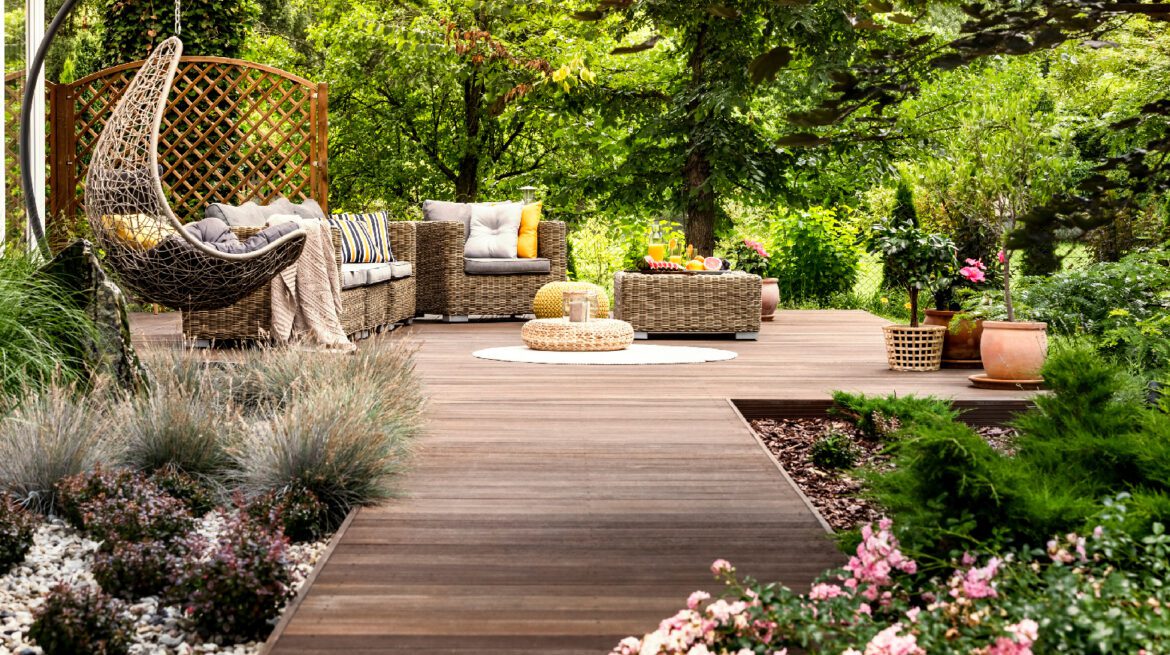Why do Native Plants Matter?
Work with – not against – nature to achieve a sustainable and thriving home garden
The fancy new exotic plants displayed in your local garden center can be tempting. We have all been there – You buy a flowering tropical tree only for it to wither away a few weeks after transferring it to your yard. This tropical tree is not used to local conditions or seasonal changes, and it has not adapted the tools to survive there.
Plants that are native or indigenous to a specific area have evolved alongside the soil and climate of that land over time, making them the perfect match for local conditions. Non-native plants that have been introduced by humans can be problematic by not adapting to regional weather, failing to support your neighborhood critters, or even becoming an invasive species.
What exactly are native plants?
Native plants include all plants that have historically been found in one particular region, as opposed to those that were introduced by people or non-native plants.
These organisms are prepared for local conditions and have evolved alongside local wildlife. Because they have been living with the animals in your area for generations, they know how to get along with them and can help support their continued existence.
Native plants also naturally support native biodiversity, which means that when you plant them on your property, it becomes an extension of a larger ecosystem. A native garden fosters a thriving home for the insects, bugs, birds, and animals that have also decided to reside in your ZIP code.
They require fewer resources.
Rather than relying on the traditional crutches of modern gardening, plants indigenous to your area are usually hardy, strong, and persistent. These native species can be better for the environment because they typically require less water, fertilizer, and pesticides than non-native plants. That is because they are adapted to local pests and diseases, local climate conditions, local soil nutrients, and even how to best support local wildlife. This means less watering, fertilizing, and general garden work for you.
These seedlings have often evolved against the same threats over hundreds of years, so they have had time to build up resistance. By selecting native plants, you do not need to use chemicals (or deal with all of the associated negative side effects) to keep your garden healthy. More time to enjoy your yard, rather than spending time and money on maintenance activities!
They support your local ecosystem.
Native plants are key to preserving biodiversity. When you use native plants in your garden, you help to reduce the need for pesticides, fertilizers and other agricultural chemicals that can harm the environment, including local wildlife, waterways and human health.
Native plants are also an ideal food source for important pollinators. Millions of herbivorous insects rely on only a particular group of plants to survive. These plants defend themselves with poisonous chemicals to protect themselves against bugs – meaning that only those insects that have been building up resistance to these chemicals for a long period of time can eat those plants. The whole idea is that certain native plants have evolved in concert with local food webs and systems.
Biologists, entomologists, and ecologists are in favor of native plant species for a reason. These plants make up critical parts of the food web, nourishing tiny creatures at the bottom and laying the foundations of a chain that lead up to the beautiful birds and amphibians that may visit our gardens.
Becoming an Ecological Gardener
If you are planting a garden, you are already on the right track. Gardening can be one of the most rewarding activities you will ever decide to start – but it is also an act of revolution. Taking charge of the types of plants you propagate can make you an educated and informed gardener, actively supporting the sustainability of your neighborhood.
Birds, bees, and butterflies are already threatened by high pesticide use and a major loss of habitat in the United States. Native plants matter because they create positive solutions to these obstacles, fostering new habitats and requiring fewer chemical interventions to survive. These plants can even represent a sense of local pride in the traditional bugs, creatures, flowers, and wildlife of a particular region.
If you are interested in finding plants native to your area for your garden, research the native plant list for your state online. There are plenty of tools, resources, and blogs created by scientists and professional gardeners who are passionate about spreading the word on native species. The National Wildlife Federation has created an online tool to help local gardeners create sustainable, thriving gardens filled with indigenous plants.

